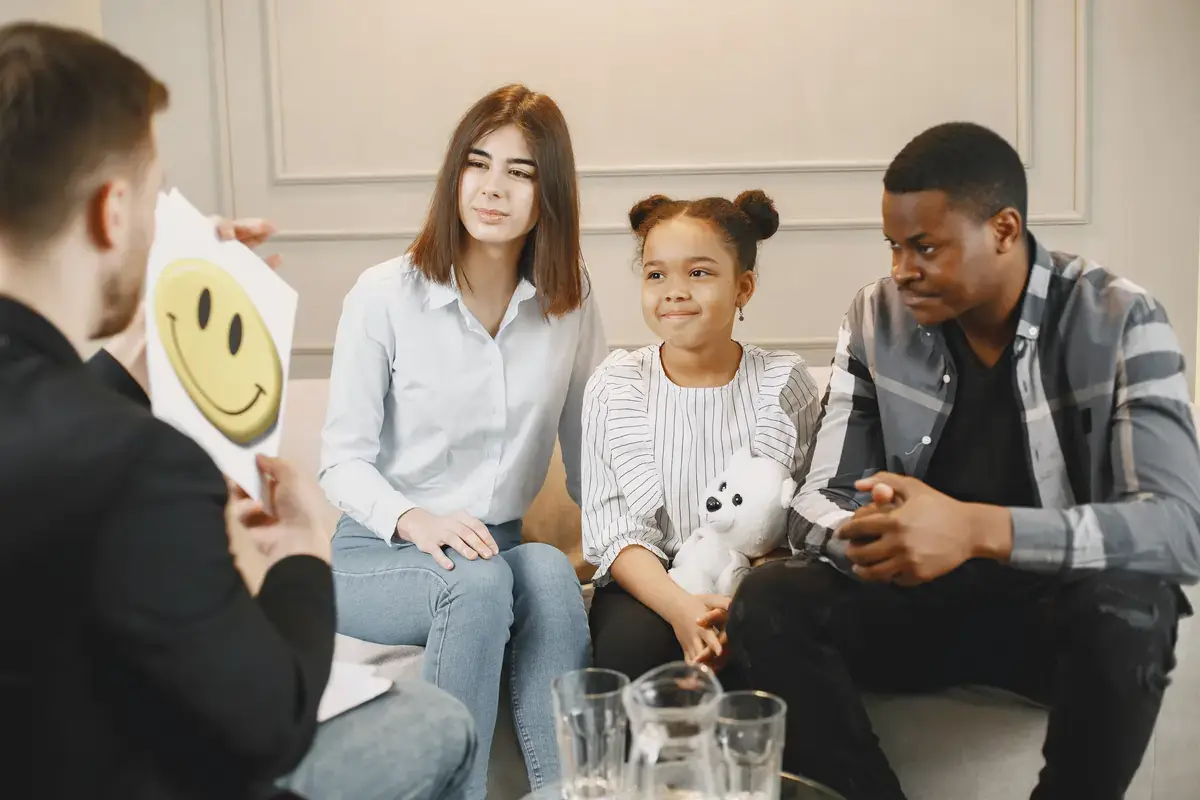How to Express Romantic Love: Effective and Heartfelt Gestures
All the world celebrates romantic love, and people from all walks of life look for ordinary moments and extraordinary ones to express love to their...
4 min read
![]() Williamsburg Therapy Group
:
Jul 24, 2023 10:53:00 AM
Williamsburg Therapy Group
:
Jul 24, 2023 10:53:00 AM

Key Takeaways:
Depending on the age of your child, talk therapy may not be an option.
It's fairly obvious that a child who does not yet have the ability to form full sentences won't exactly be able to benefit from talk therapy.
Even children who can speak may not be quite old enough yet to fully understand the finer points of cognitive restructuring that occur in, for example, cognitive-behavioral therapy.
For younger children, play therapy is often the most effective means to analyze and improve mental health. Play therapy is most commonly used with children ages three to eight, but it can also be effective for children as old as 12.
Within the practice of play therapy, there are several subtypes that therapists use depending on the presenting issue and other case specifics.
Let's explore play therapy and determine whether it may be right for your child.
Play Therapy Resources on This Page:
Will my child benefit from play therapy?
How does play therapy differ from regular play?
Williamsburg Therapy Group's Child and Family Program: Child Play Therapy in Brooklyn
If your child is under the age of 12, there is a good chance they could benefit from play therapy.
Depending on the age of your child and the presenting mental health concern, your child's therapist may recommend a combination of different types of play therapy - such as child-centered play therapy and family play therapy - or a combination of play therapy and some form of talk therapy.
Play therapy sessions typically last from 30 to 50 minutes, and can involve an array of toys either provided by the parent or the therapist.
Child psychology is fundamentally different from adult psychology, so a technique that may seem pointless to an adult may actually be communicating very important - and productive - information to your child.
Some parents falsely assume that, because play therapy often looks very similar to regular play at home, that there is no difference. This is not the case.
We should note that playing with your child at home - participating in their make-believe games and sharing toys - is essential for their development. Children learn through play, and the guidance and participation of a parent can help your child develop the values you want to instill in them, as well as facilitate parent-child bonding.
At-home play is free-form, and the primary goal is to have fun. By contrast, play therapy with a licensed therapist, while also fun, is more stringent and focused on mental health and development.
Only a trained mental health professional can understand the psychology of your child enough to know where treatment and play should go next.
During play therapy, your child's therapist will execute a number of specially designed playing tactics, including:
Each tactic used in play therapy is designed by researchers using scientific studies and decades of repeatable experimentation. While they are forms of play, they are also evidence-based methods for promoting the development of mental health in your child.
Often, your child's therapist will include one or two parents, as well as siblings, in play therapy. Family play therapy can help the family bond, giving your child a stronger support network and informing the members of their family about proper techniques for communicating with and playing with the child in therapy.
It's also often beneficial for the therapist if the family is included in sessions. Most children feel more comfortable with strangers (which, during the first few sessions, the therapist is) with their family present. Children may be more forthcoming about playing if their parents and siblings are present.
Psychodynamic therapy, in adult therapy, analyzes a patient's past and interprets it in the context of existing symptoms.
Psychodynamic play therapy is very similar, and operates under the assumption that, if your child has a behavioral problem or communication issues, there is a reason.
The therapist may analyze the child's home life and past events in order to determine if the child's still-developing brain is thinking and feeling a certain way as a result.
Similar to standard cognitive-behavioral therapy, cognitive-behavioral play therapy (CBPT) refers to guided play that a therapist then analyzes to determine whether your child has any maladaptive thought processes or behaviors.
If they do, the therapist will then suggest new ways to play, or new make-believe situations, to make adjustments. This process is called cognitive restructuring.
Child-centered play therapy isn't exactly "hands-off", but it does focus more on the child's independence.
Under the supervision of the therapist, and with some initial conditions or toys provided to stimulate certain behaviors and thought processes, your child will spend the duration of the session developing independence and a more well-defined self concept.
For the absolute best in child mental healthcare, the only choice is Williamsburg Therapy Group.
Each of our therapists is doctoral-level and highly experienced, giving them uniquely qualified insight into your child's mind.
Check out our child therapy offerings, or give us a call to let our patient coordinator match your child with the right therapist.
We are honored to be your choice in child mental healthcare.

All the world celebrates romantic love, and people from all walks of life look for ordinary moments and extraordinary ones to express love to their...

What is relationship burnout or relationship fatigue? Many of us have heard of burnout, but we often connect it to professional life and the problems...

In today's digital age, so many of us are locked into our mobile devices each and every day, which can have a negative impact on our mental...